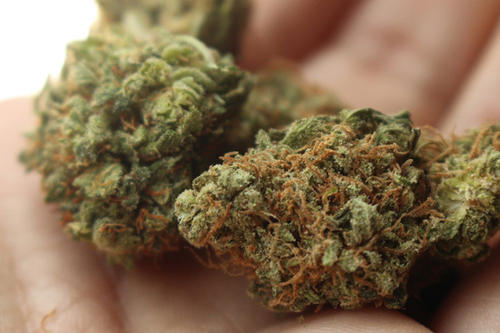Research Brief: Underage marijuana use and impaired driving common in Colorado and Washington where marijuana is legalized

A new study by the University of Minnesota School of Public Health, published in the International Journal of Drug Policy, shows law enforcement agencies in Colorado and Washington—states where marijuana is legalized—report common problems with underage marijuana use (under age 21) and driving under the influence of marijuana in their communities.
“There's a general public zeitgeist that marijuana is a pretty safe drug,” said study co-author and Associate Professor Darin Erickson. “In actuality, there hasn’t been a lot of research regarding how marijuana is used, its safety or its harms.”
To learn how both states were enforcing age-restriction and driving laws regarding marijuana use, Erickson surveyed 50 local enforcement agencies in Colorado and Washington in 2016 and 2017 on: if they find underage marijuana use and impaired driving to be common problems in their cities; the types of enforcement they are using to counteract it; and the resources they have to aid them.
The study showed:
- all local agencies reported underage use was somewhat or very common in their jurisdictions;
- most agencies in both states reported marijuana-impaired driving was somewhat or very common in their jurisdictions;
- 30 percent of local agencies conducted enforcement targeting underage use or possession;
- 20 percent of agencies overall conducted underage compliance checks at licensed stores, with more agencies conducting checks in Colorado (32 percent) than Washington (8 percent);
- one local agency in each state specifically targeted marijuana-impaired driving;
- the state-level agency in Washington reported that its agency is the one primarily responsible for enforcing marijuana retail laws and it conducted routine underage compliance checks at all licensed marijuana stores three times per year.
“In general, we found that enforcement is not a high priority for most places,” says Erickson. “That said, we know enforcement strategies work to curb illegal substance use. Enforcing alcohol laws reduces underage drinking and related problems—and it could be used to improve the situation with marijuana.”
For solutions, Erickson recommends that states earmark tax money from retail marijuana sales to fund policy enforcement programs. He also suggests conducting additional research to develop roadside tests for impaired driving as well as epidemiological studies to learn how people typically use marijuana, such as in conjunction with alcohol.
The study was funded by the University of Minnesota's Office of the Vice President for Research through the Grant-in-Aid of Research, Artistry, and Scholarship program.
###
- Categories:
- Health




